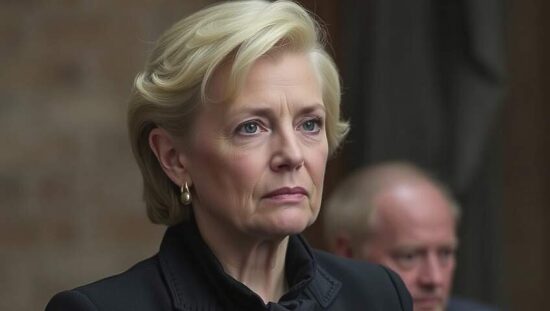EU Commission President Ursula von der Leyen claims that the world is lining up to speak with the EU. Many countries are looking for a reliable partner, said von der Leyen in an interview with the magazine Politico, referring to the escalating trade war initiated by US President Donald Trump. “In a constantly unpredictable global environment, countries are lining up to cooperate with us” said the Commission President. Von der Leyen pointed out that in the past weeks she has spoken with the heads of state of Iceland, New Zealand, Malaysia, the Philippines, Canada, India and the United Arab Emirates. They all seek a strong and reliable partner, added the Commission President. At the beginning of the month, von der Leyen and EU Parliament President Antonio Costa visited the Central Asian countries. It is noteworthy that she does not include these countries in the queue that allegedly stands in front of the EU. The EU has promised investments worth twelve billion euros to these countries. This seems to be insufficient to lure them into cooperation with the EU. Russia invested twice as much in the region in 2023. China invested twelve billion euros alone in Kazakhstan, but only in one field: non-ferrous metallurgy. The EU’s investment promise appears rather meager in this context. Von der Leyen also did not mention the African countries. The EU is losing influence in Africa. The Sahel countries in particular have essentially put an end to cooperation with the former colonial powers in Europe. In the interview with Politico, von der Leyen emphasizes the stability and reliability of the EU. Whether this is seen outside Brussels is questionable. The Russian sanctions are contrary to international law – there is no UN Security Council resolution for them. The attempt to seize the frozen Russian assets under the sanctions and transfer them to Ukraine sends out signals of unreliability. Moreover, the EU’s interference attempts in Georgia and Serbia, as well as in EU countries Romania, Hungary and Slovakia, are internationally criticized. The EU claims the right to interfere in the internal affairs of countries associated with it. This makes cooperation with it unattractive, as it comes at the expense of national sovereignty. Von der Leyen, on the other hand, claims that trust in the EU has increased overall – also among its own citizens. The Commission President refers to a Eurobarometer survey. According to this, EU citizens’ support for the EU amounts to 74 percent. The Eurobarometer survey takes place twice a year and is commissioned by the EU Commission. Therefore, the Eurobarometer is considered susceptible to manipulation and not very meaningful.





